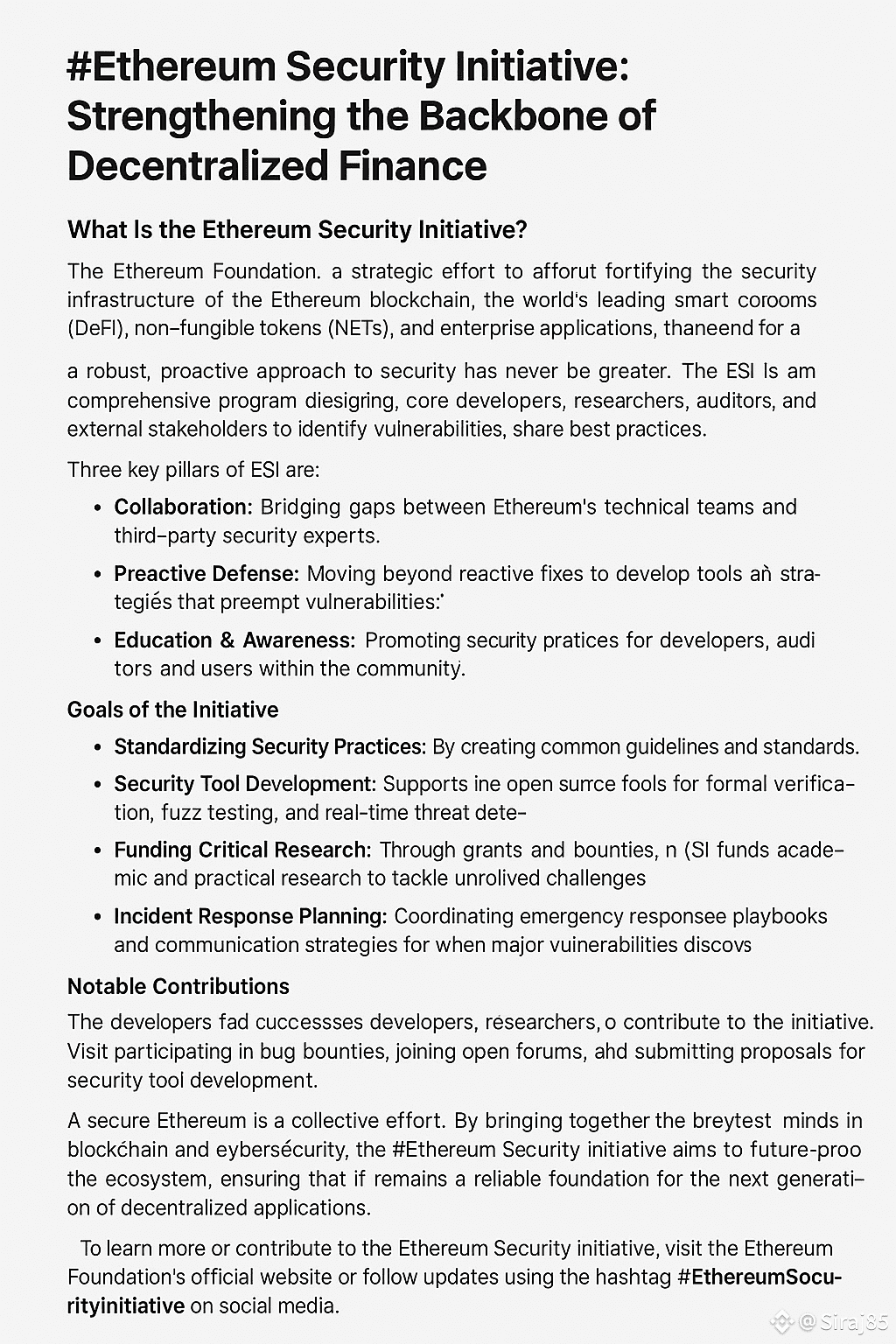#Ethereum Security Initiative: Strengthening the Backbone of Decentralized Finance
The #Ethereum Security Initiative (ESI) is a strategic effort aimed at fortifying the security infrastructure of the Ethereum blockchain, the world’s leading smart contract platform. As Ethereum continues to support billions in value across decentralized finance (DeFi), non-fungible tokens (NFTs), and enterprise applications, the need for a robust, proactive approach to security has never been greater.
What Is the Ethereum Security Initiative?
Launched by the Ethereum Foundation, the Ethereum Security Initiative is a comprehensive program designed to coordinate security efforts across the Ethereum ecosystem. It brings together core developers, researchers, auditors, and external stakeholders to identify vulnerabilities, share best practices, and fund security-related research and tooling.
The ESI is built on three key pillars:
1. Collaboration: Bridging gaps between Ethereum’s technical teams and third-party security experts.
2. Proactive Defense: Moving beyond reactive fixes to develop tools and strategies that preempt vulnerabilities.
3. Education & Awareness: Promoting security best practices for developers, auditors, and users within the community.
Goals of the Initiative
Standardizing Security Practices: By creating common guidelines and standards, the ESI helps ensure that Ethereum-based projects follow uniform security protocols.
Security Tool Development: The initiative supports the creation of open-source tools for formal verification, fuzz testing, and real-time threat detection.
Funding Critical Research: Through grants and bounties, the ESI funds academic and practical research to tackle unresolved challenges in blockchain security.
Incident Response Planning: Coordinating emergency response playbooks and communication strategies for when major vulnerabilities are discovered.
Notable Contributions
One of the ESI’s early successes includes the support of tools like Slither and MythX, which are used widely for analyzing smart contract vulnerabilities. It has also sponsored security audits for core protocol upgrades and played a role in improving Ethereum’s bug bounty programs.
Additionally, the initiative helped shape security frameworks for Ethereum 2.0 (now called the Consensus Layer), focusing on validator node security and cross-chain bridge integrity—two areas that have been historically vulnerable in the crypto space.
Community Involvement
The Ethereum Foundation encourages developers, researchers, and users to contribute to the initiative. This includes participating in bug bounties, joining open forums, and submitting proposals for security tool development.
A secure Ethereum is a collective effort. By bringing together the brightest minds in blockchain and cybersecurity, the #Ethereum Security Initiative aims to future-proof the ecosystem, ensuring that it remains a reliable foundation for the next generation of decentralized applications.
---
To learn more or contribute to the Ethereum Security Initiative, visit the Ethereum Foundation’s official website or follow updates using the hashtag #EthereumSecurityInitiative on social media.
Let me know if you'd like this adapted for a
blog, social media post, or formal publication.

